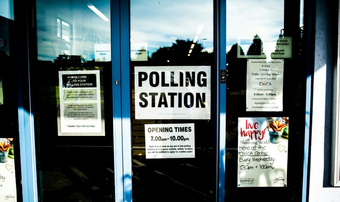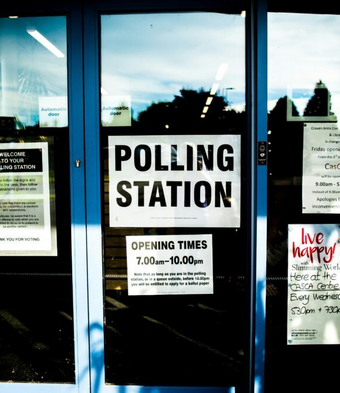Free speech or foul speech?

On the 5th July 2024, incoming Prime Minister Kier Starmer, stood before 10 Downing Street and made a remarkably conservative statement. “You have given us a clear mandate… And we will use it to deliver change… To restore service and respect to politics… End the era of noisy performance… Tread more lightly on your lives… And unite our country.”
Six weeks later, you would be forgiven for thinking a different government had taken control. Far from being a harmonious and united nation, the UK has been rocked by riots and ethnic violence sparking several foreign governments to issue travel warnings to any citizens intending to visit the UK.
And despite the claim on that first morning of his premiership, the UK remains as embattled with performative noise as it had done under the previous Conservative government.
Although Labour Ministers were quick to declare the end of the culture wars, it turns out the culture wars can’t just be told they’re over and done with…
For whilst there has largely been unity amongst the British public in their condemnation of the riots, with 74% agreed that they are indeed riots, not protests, and 78% attributing the riots to either far right ideology and racism or the simple desire to engage in violence and criminal damage rather than legitimate concerns about immigration, wildly divergent narratives circulate about the riots, their causes, and the aftermath.
The most visible divergence is between voters of Reform and those of the Green Party, with 50% of Reform voters viewing those who participated in the riots as “standing up for Britain” compared to a enormous 91% of Green voters viewing the same participants as “shaming Britain”. Of course, this is in part due to these two parties representing the opposing poles in our present political system, but a quick browse through newspapers and media outlets of both right and left persuasions shows the ongoing culture wars to be in good health, with differing takes on the place of mass migration, extent of two-tier policing, severity of the sentencing, and the role of social media.
We should not be surprised. After all, we live in a nation in which our sacred values, sources of moral authority, and subsequent reading of the world have no united anchor nor framework. And this issue is particularly prominent in the most recent edition of the free speech debate ignited by Labour’s questioning of the role of social media, and particularly Elon Musk and X, in encouraging the rioting.
Free speech has long been a litmus test issue for discerning one’s loyalty in the culture wars. Take for example, a poll conducted by YouGov back in 2021 which asks “What should we prioritise more: protecting free speech or stopping offensive and hateful speech?” Labour voters, women, and the young overwhelmingly lean towards prioritising protecting people from harm, whilst Conservative voters, men, and older voters opt instead to uphold free speech.
These findings are supported by the ‘Freedom of Speech in the UK’s “Culture War”’ study carried out by The Policy Institute, Ipsos Mori, and Kings College London in 2022. Asked to grade whether people are too easily offended or people need to be more sensitive, the same split is replicated, with Labour voters, women, and the young leaning more towards the need for people to be sensitive, and Conservative voters, men, and older voters leaning towards the take that people are too easily offended.
It is on this matter that Starmer’s claim to tread more lightly on people’s lives is really going to be put to the test. One could already question such a take given Labour plans such as the introduction of mandatory teeth brushing in schools, but in the wake of the riots, the Labour government’s response has been to default to their desire to protect from harm with social media being lined up as the fall-guy.
At one level, this is a noble aim: anyone who spends anytime on X knows all too well the gutter views (of both the left and right) that seem to gain prominence by trading in its currency of outrage and clicks. Yet it fits in with a rather worrying pattern in British politics in which free speech is gradually being restricted and diminished.
There has been legislation to establish buffer zones around abortion clinics, with some pushing for silent private prayer within these zones to be made illegal. We have a hate crime definition which rests on the victim’s perception of the alleged offender’s intentions/motivations. Non-Crime Hate Incidents (NCHIs) are being recorded despite there being no criminal offence, with worrying examples including the reporting of senior politicians for comments critical of government policy.
Of course, Labour hasn’t had time to bring these bills into passage in its short six weeks in office, and so the previous Conservative administration must bear some responsibility for the chilling of free speech. However, the Conservatives did take some positive steps including passing landmark legislation such as the Higher Education (Freedom of Speech) Act 2023 which imposed a requirement for universities to take steps to protect free speech, but which has since been repealed by the new Education Secretary.
Meanwhile, under Labour, controversial plans to introduce a Bill outlawing conversion therapy have been pledged which could pose a threat to religious freedom. Likewise, there is the Online Safety Act, something we have long campaigned for as essential to protecting minors from the harms of online pornography, but which has the potential to be implemented in such a way that would target not just illegal content, but that which is perceived to be dangerous, something that reflects the controversial term “legal but harmful” that was present in previous iterations of the Act before being removed. Proposals to amend the Online Safety Act are gaining renewed attention in the wake of the riots, and it remains to be seen what may come of such a review.
Our laws in Britain do seek to strike a balance: they enshrine the protection of freedom of speech under Article 10 of the Human Rights Act (1998), but that is qualified with the duty to “behave responsibly and to respect other people’s rights”, as well as the potential for “Public authorities may restrict this right if they can show that their action is lawful, necessary and proportionate in order to”, amongst other things, protect national security, prevent disorder or crime, protect health or morals, and protect the rights and reputations of other people.
Even though the right to freedom of expression is enshrined in the UN Declaration of Human Rights (Article 19) as a fundamental right, much legislation since (including our own) has recognised there are limits to such a right. You might think this strikes the right balance. After all, as I’ve written before, we are rarely comfortable with pushing either side of the debate to the extremes. Nevertheless, the underlying trend appears to be in favour of limits to the right to free speech, and with a government predisposed towards limiting harm, we should not be surprised to see that tendency strengthened.
Surprised we may not be, but concerned we ought to be. After all, the definition of harm is infamously woolly and politicised. The right’s concept of freedom of speech can leave them open to the charge they simply want free speech to be horrible to others and are less willing to take it themselves, and the left’s idea of what does and doesn’t cause ‘harm’ is also notoriously selective. Take for example the championing of vitriolic anti-Tory rhetoric whilst at the same time calling for a kinder, gentler politics. And if we are honest, this is the problem with legislating free speech: it is all too easily open to politicisation.
Furthermore, in this instance, curtailing freedom of speech seems like a nice and straightforward solution to the horrific scenes we’ve witnessed in recent weeks. But of course, the situation in the UK was born of far more than just despicable social media postings, and any proposed solution will need to robustly reckon with the rather tricky issues of mass migration, integration, British identity, poverty and deprivation, racism and the far-right, and plain old criminality.
Now, I don’t doubt that social media is a part of the problem. It can be vile, abusive, angry, deceitful, slanderous, and filled with inane gossip. However, if we are honest, none of that is purely down to social media, rather it is down to the people who use it. After all, social media simply reflects our culture back at us. Sure, it can cater to our worst impulses and instincts, but they are still our worst impulses and instincts, not some mythical ‘other’s’.
To pretend that there is not a bigger issue here is to overlook human nature and the reality of our broken world. And if we were to relentlessly pursue the minimisation of harm, we would end up policing the outpouring of every evil from the human heart, not just what manifests in concrete discernible crimes.
Whilst Christians should commend the duty, outlined in our legislation, to take responsibility for our words (James 3), Christian theology has long centred on prosecuting crimes not sins as Timothy Laurence notes: “We are able to distinguish between sins and crimes because the task of public authority is not morality itself but the beneficial structure of public order according with (but not co-extensive with) the moral order. Sins transgress the moral order of the universe. But, rightly understood, crimes are only those sins which directly attack the public order of society. The public authority is thus concerned not with private matters but public.”
There are aspects of the present free speech debate which do rightly concern public order, yet I fear that far too many of the examples and trends have far more to do with enforcing the morality of the day, and that is an issue of civility, not criminality.
The problem for our culture on this particular point, however, is that we have thrown away God. There is no one left to judge our sins as well as our crimes. There is none we can look to beyond ourselves for moral order and guidance.
A world without restraint, without kindness, without civility, and without morality is unpalatable to us. Yet to legislate along these lines ourselves, will only lead us to say, as God does, “there is no one who does good”: we will see the creeping presence of legislation expanding into ever more aspects of our lives (of which free speech is just one).
Legislation is of course necessary, a valid and legitimate tool in the armoury of the institution of government, but just like the Old Testament law was “powerless” to change our hearts, so too is legislation powerless to bring about the moral order that we seek in our societies in and of itself. For that we need something far more powerful: the grace of God himself.
If only we could grasp this truth in our Parliament, in our Government, and in our Law Courts! The law is a great teacher: it shows us what is good and what is wrong, and it can even incentivise good behaviour, but it cannot transform a society gripped with the wicked passions on display in our social media newsfeeds. For that, no amount of education, legislation, or reform will give us what we seek.
No, what we need, is to recognise as Paul does “What a wretched man I am! Who will rescue me from this body that is subject to death? Thanks be to God, who delivers me through Jesus Christ our Lord!”






